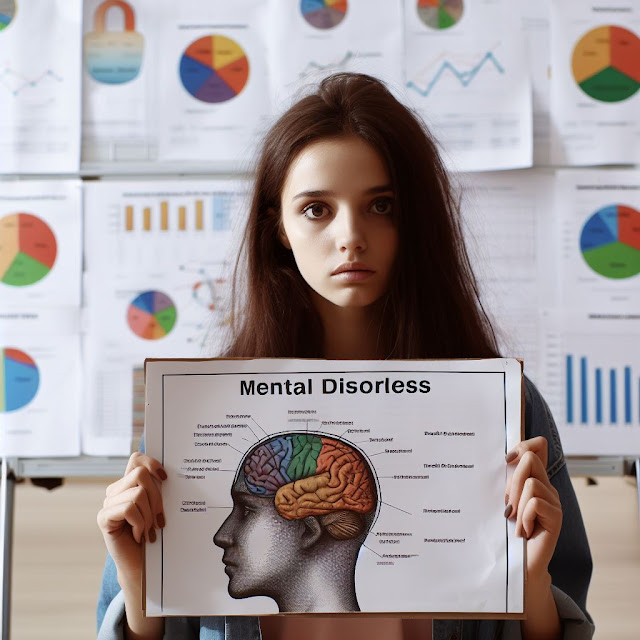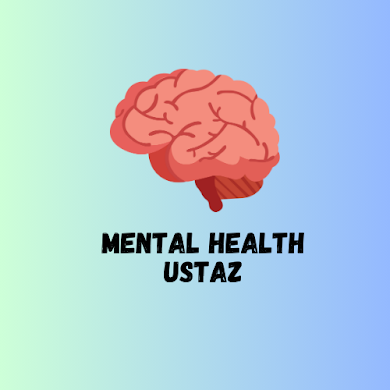Introduction: Mental health is an integral part of our overall well-being. While most people experience occasional emotional fluctuations, some individuals face more severe and persistent mental health challenges. This article aims to provide a comprehensive overview of the seven main mental disorders, including "What are the 7 main mental disorders?" recognized by experts and organizations such as the World Health Organization (WHO). By understanding these conditions, we can better support individuals facing them and reduce the stigma associated with mental health issues.
### What are the 7 Main Mental Disorders?
1. **Depression**
Depression is one of the most prevalent mental disorders worldwide. It is characterized by persistent sadness, hopelessness, and a loss of interest or pleasure in daily activities. Individuals with depression often experience changes in appetite, sleep disturbances, and difficulty concentrating.
Depression can vary in severity, from mild to severe, and it can impact every aspect of a person's life. It's important to seek professional help when experiencing symptoms of depression.
2. **Anxiety Disorders**
Anxiety disorders include a range of conditions, such as generalized anxiety disorder, panic disorder, and social anxiety disorder. People with these disorders experience excessive worry, fear, and apprehension, which can interfere with their daily lives.
While anxiety is a normal reaction to stress, excessive and persistent anxiety can be a sign of an anxiety disorder. Effective treatments, including therapy and medication, are available to manage these conditions.
3. **Schizophrenia**
Schizophrenia is a complex and severe mental disorder that affects a person's thinking, emotions, and behavior. Symptoms may include hallucinations, delusions, disorganized thinking, and impaired social functioning.
Treatment for schizophrenia often involves a combination of antipsychotic medications and psychotherapy to help individuals manage their symptoms and improve their quality of life.
4. **Bipolar Disorder**
Bipolar disorder involves extreme mood swings, ranging from manic episodes characterized by high energy and euphoria to depressive episodes marked by sadness and hopelessness. These mood fluctuations can significantly impact one's life.
Proper diagnosis and treatment, often involving mood stabilizers and therapy, can help individuals with bipolar disorder manage their condition effectively.
5. **Obsessive-Compulsive Disorder (OCD)**
OCD is defined by the presence of obsessions (intrusive, unwanted thoughts) and compulsions (repetitive behaviors or mental acts) that a person feels compelled to perform. This disorder can be distressing and time-consuming.
Cognitive-behavioral therapy (CBT) is a common treatment for OCD, along with medication in some cases, to help individuals manage their obsessions and compulsions.
6. **Post-Traumatic Stress Disorder (PTSD)**
PTSD can develop after experiencing or witnessing a traumatic event. Symptoms include flashbacks, nightmares, and severe anxiety, which can persist long after the trauma has occurred.
Therapy, particularly trauma-focused therapy, can be highly effective in treating PTSD and helping individuals recover from their traumatic experiences.
7. **Eating Disorders**
Eating disorders, such as anorexia nervosa and bulimia nervosa, are characterized by severe disturbances in eating behavior. These disorders can lead to serious physical and emotional health consequences.
Treatment for eating disorders typically involves a multidisciplinary approach, including medical, nutritional, and psychological components, to address both the physical and psychological aspects of the condition.
For more detailed information on these mental disorders, including statistics, diagnostic criteria, and treatment options, you can visit the [World Health Organization's Fact Sheets on Mental Disorders](https://www.who.int/news-room/fact-sheets/detail/mental-disorders).
### Conclusion
Mental disorders affect millions of people worldwide, and it's crucial to raise awareness, understanding, and support for those facing these conditions. By recognizing the seven main mental disorders and the treatment options available, we can take significant steps toward reducing the stigma surrounding mental health and providing the necessary support for individuals living with these challenges. If you or someone you know is struggling with a mental disorder, don't hesitate to seek professional help. With the right treatment and support, individuals can lead healthier and happier lives. To access more information and resources on mental disorders, please refer to the [World Health Organization's Fact Sheets](https://www.who.int/news-room/fact-sheets/detail/mental-disorders).
Certainly, here are five frequently asked questions (FAQs) related to mental disorders:
1. **What causes mental disorders?**
Mental disorders can result from a combination of factors, including genetics, brain chemistry, life experiences, and trauma. Understanding the precise cause of a specific mental disorder can be complex, as it often varies from person to person.
2. **How common are mental disorders?**
Mental disorders are more common than you might think. According to the World Health Organization, approximately one in four people worldwide will experience a mental disorder at some point in their lives. This underscores the importance of awareness and support.
3. **Can mental disorders be cured?**
While some individuals may experience significant improvement or even remission of symptoms with treatment, most mental disorders are considered chronic conditions. However, they can be effectively managed with the right treatment and support, allowing individuals to lead fulfilling lives.
4. **Are mental disorders linked to substance abuse?**
Yes, there is a strong connection between mental disorders and substance abuse. People with mental disorders may turn to substances like alcohol or drugs to self-medicate or cope with their symptoms. This can lead to a co-occurring disorder, which requires specialized treatment.
5. **How can I help someone with a mental disorder?**
Supporting someone with a mental disorder involves being understanding, non-judgmental, and encouraging them to seek professional help. You can also help by educating yourself about their specific condition, attending therapy sessions with them, and promoting a healthy and supportive environment.
Remember, it's essential to consult with mental health professionals for personalized information and guidance regarding mental disorders.




0 Comments